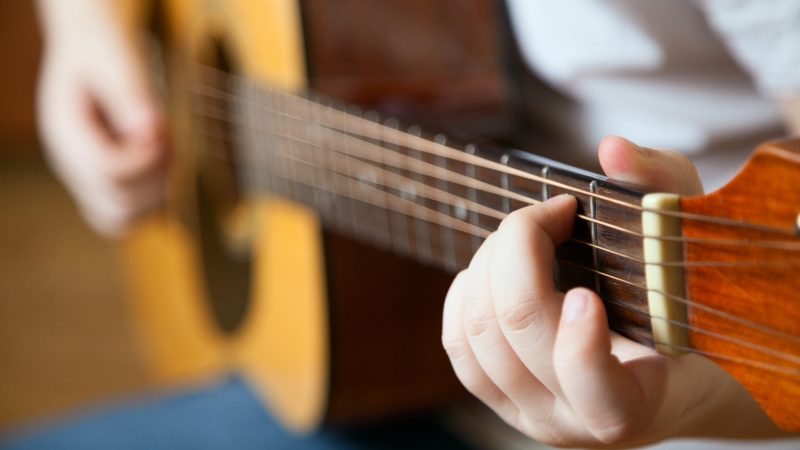
Music is woven through all our lives. Every day, millions of us enjoy music – sharing collective experiences through singing, making music, learning an instrument, or just listening to our favourite artists. For young people, this is especially true: one survey found that 64% of young people considered themselves to be musical. That is why a high-quality music education, accessible for every child, is so important.
For some people, a music education will prepare them for a career in the music sector or enable them to progress to the highest level as a musician or singer. But for most young people, the benefits are far broader: a sense of being musical, a wider appreciation for music. Being able to play music or sing has a beneficial impact on physical and mental health for young people and, by generating a love of music, music education can act as a foundation for these benefits to be accessed well into adulthood. And parents want music education to be a core part of their child’s education: one survey found 54% saying the quality of a school’s music education was an important factor in deciding where to send their child.
After 12 years of real-terms cuts under the Conservatives, many children aren’t getting the education they need. As the government admitted in its own National Plan for Music Education, launched last month, “provision remains patchy” in England. In schools, young people have less access to statutory music education than they used to. Meanwhile music education hubs, which teach music and connect schools with music organisations, are struggling to fill the gap. Those music teachers, employed by hubs, have seen a reduction in their pay, conditions, and job security – with many well-qualified teachers leaving as a result.
This is disproportionately affecting young people from low-income families, Black and minority ethnic young people, disabled young people and young people in rural areas. As with other public services, the next Labour government will have to rebuild music education in England – and guarantee access for all. This should be a vital part of Labour’s vision of an education system that is ambitious for every young person, and which provides a broad range of opportunities to learn and develop.
Labour in Westminster can learn from Labour in Wales. Their new National Music Service aims to ensure that all children and young people, aged three to 16, will have access to opportunities to play, sing, take part in, and create music. Backed up with new funding from the Welsh government, it seeks to expand the opportunities of music education for every young person, while ensuring each place its own unique identity of provision. The Welsh government has also promised a review of terms and conditions for instrumental and vocal teachers to ensure they are treated equitably and recognised properly.
Our new Fabian Society report recommends that England should follow suit. The next Labour government should introduce a National Music Education Service in England. This new service should commit to ending fragmentation in provision and prioritise expanding opportunities for under-represented groups – focusing especially on children with special educational needs. Good education relies on a good workforce, so there should be a workforce guarantee that teaching will be delivered by well-trained and well-paid staff that have secure, rather than zero-hour, contracts.
This new service should be backed up with increased and multi-year funding from central government. This would enable a longer-term focus on improving the accessibility and quality of music education. Every pound of public money invested in the National Music Education Service should be evaluated, so we can trust that additional investment is delivering the outcomes young people deserve.
By introducing a National Music Education Service in England, the next Labour government can ensure every young person is able to access a good music education. In doing so, we can ensure music remains at the heart of the lives of the next generation.




More from LabourList
Antonia Romeo appointed to lead civil service as new Cabinet Secretary
‘If Labour is serious about upskilling Britain, it must mobilise local businesses’
Stella Tsantekidou column: ‘What are we to make of the Labour Together scandal?’